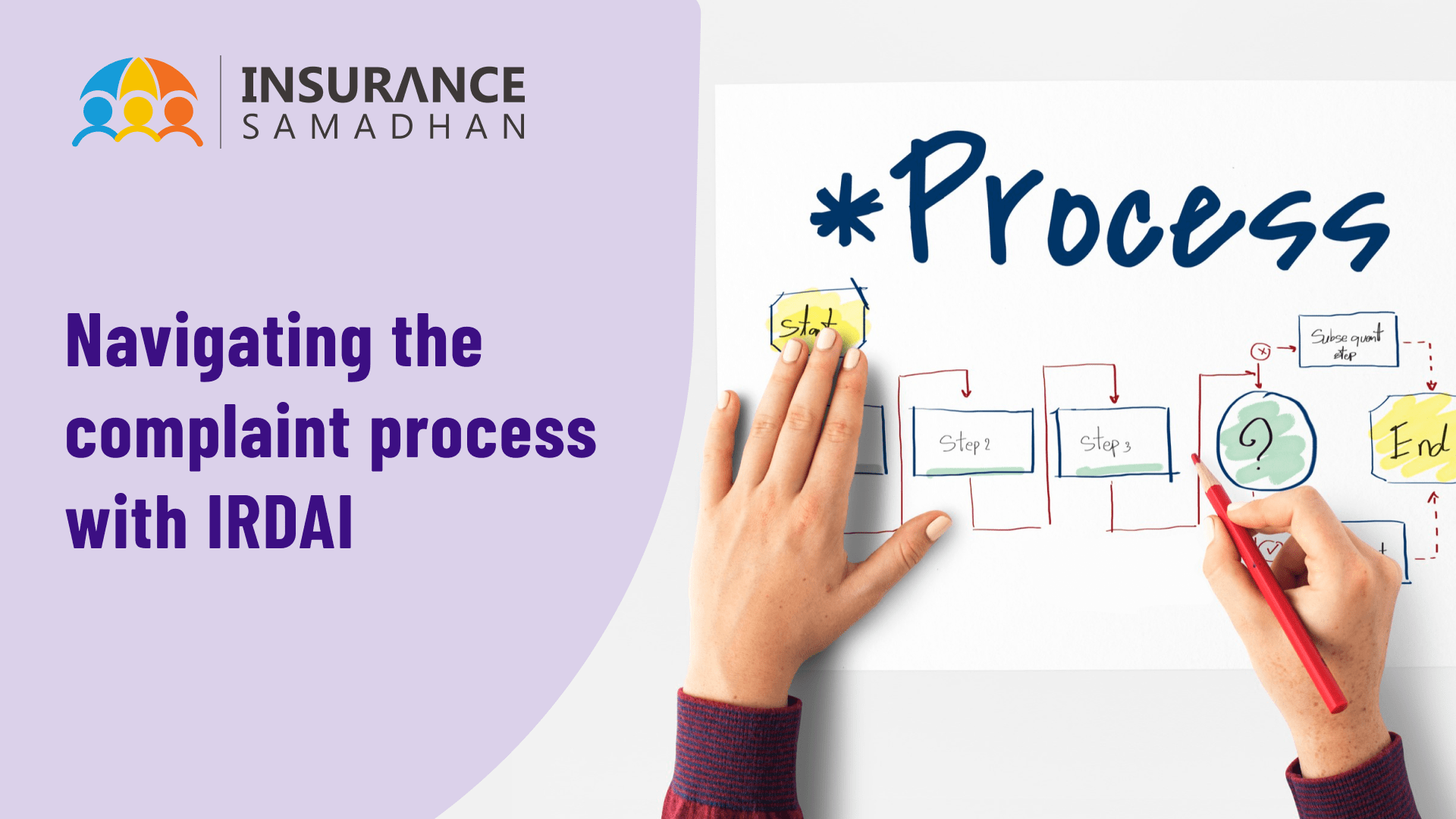An Overview
India has a sizable insurance market, and there are numerous insurance firms that deal with life insurance and general insurance among other sorts of insurance. These businesses require a regulatory agency to oversee their operations. The Insurance Regulatory and Development Authority, or IRDAI, is an independent organization that performs this. This organization was established in 1999 with the goal of developing and regulating the insurance sector. It was incorporated in August 2000. The Insurance Regulatory and Development Authority, or IRDAI, works to improve competition. Hence, customers have more options and pay less for insurance, improving customer happiness while preserving the market’s financial stability. Understanding the workings of the country’s insurance industry is crucial to understanding how it runs.
Policyholders’ complaints and grievances are investigated by the Policyholder’s Protection & Grievance Redressal Department of the Insurance Regulatory and Development Authority of India, which also takes the complaints to the appropriate insurers for resolution.
IRDAI Mission
- To ensure that policyholders are treated fairly and to defend their interests;
- For the benefit of the general public, to promote the insurance sector’s rapid and orderly expansion (including annuity and superannuation payments), and to provide long-term capital for the economy’s rapid expansion;
- To establish, encourage, oversee, and enforce strict guidelines for the competence, fairness, and financial stability of those it governs;
- To put in place efficient grievance redressal mechanisms, to prevent insurance frauds and other malpractices, and to assure quick settlement of legitimate claims;
- To encourage fairness, openness, and discipline in financial markets that deal with insurance, as well as to create a solid management information system to impose strict requirements for the financial soundness of market participants;
- To take action when such standards are not sufficient or are not properly enforced;
Grievance Redressal with IRDAI
The following principles underlie the grievance resolution process.
- Customers are always given fair treatment
- Customer complaints are addressed politely and with an open mind.
- Customers are notified of the organization’s channels for escalation of their complaints and grievances through policy documents.
- To resolve every complaint quickly and fairly because, if neglected, they can harm the business and reputation of the company.
Steps to Seek Redressal
The policyholder may file a complaint in any of the following ways:
If one is dissatisfied with the claim-handling or insurance company practices,
- one can Contact the branch or any other office that you encounter with a grievance resolution officer. The IRDAI portal, policyholder.gov.in, provides access to all formal mail IDs for Grievance Redressal Officers, or GRO, of all insurance firms.
- Written complaint that includes all the supporting documentation Obtain a written acknowledgement of the complaint date.
- All complaints must be resolved by the insurance provider within 15 days.
In the event that does not occur or if the policyholder is dissatisfied with the resolution, he may:
- Email the concern to complaints@irdai.gov.in.
- Can dial 1800 4254 732 or the Toll Free Number 155255.
- In addition to the aforementioned ways, the complainant may mail the notification in physical form to IRDAI at the following address:
General Manager
Insurance Regulatory and Development Authority of India(IRDAI)
Policyholder’s Protection & Grievance Redressal Department – Grievance Redressal Cell.
Sy. No.115/1, Financial District, Nanakramguda,
Gachibowli, Hyderabad – 500 032.
- Can use the IRDAI Portal’s Bima Bharosa system to submit their own grievances and keep track of their progress by visiting https://bimabharosa.irdai.gov.in/.
It creates a token number after the complaint is filed with IRDAI or Bima Bharosa, which could be useful for tracking down the complaint.
Grievance Redressal guidelines from IRDAI
Every insurer must have a structure and process in place at each of its offices for accepting, documenting, and handling complaints. This and all other pertinent information, as well as specifics about Turnaround Times (TATs), shall be spelled out in the policy. Insurance companies are free to set their own TATs, but they must make sure that the following minimum time frames are followed:
- Within three working days of receiving a complaint, an insurer must send a complainant a written acknowledgment.
- The acknowledgment must include the title and name of the officer handling the grievance.
- It must also provide information on the insurer’s grievance system and the length of time it takes to settle issues.
- If the insurer remedies the issue within three days, it may include the recognition in the communication.
- An insurer must settle a complaint within two weeks of receiving it and deliver a final letter of resolution if it is not settled within three working days.
- When the business sends the complainant a written answer within two weeks offering compensation or rejecting the complaint and explaining why,
(i) If the complainant is unsatisfied, the insurer must let them know how to take their complaint further.
(ii). If the insurer doesn’t hear back from the complainant, it must notify that it will consider the issue to be resolved. within 8 weeks of the insured’s or policyholder’s receipt of the response.
- Any failure by insurers to adhere to the aforementioned procedures and deadlines would result in penalties from the Insurance Regulatory and Development Authority.
Depending on the nature of the complaint and the lack of satisfaction with the response, the complaint may be sent to the insurance ombudsman, consumer forum, or civil court.

Conclusion
To conclude, India’s insurance sector is overseen by the Insurance Regulatory and Development Authority of India (IRDAI), established in 1999. Its mission is to ensure fair treatment of policyholders, promote industry growth, and enforce strict guidelines. The grievance redressal process is customer-centric, with various channels for complaint resolution. Insurers must adhere to specific timeframes, and non-compliance can lead to penalties. Understanding this framework is essential for policyholders and industry stakeholders.
Click here to register your complaint with Insurance Samadhan
You can also
Visit our website: insurancesamadhan.com
Call us on +91 9513631312
WhatsApp: 9910998252
Mail us at corporate@insurancesamadhan.com